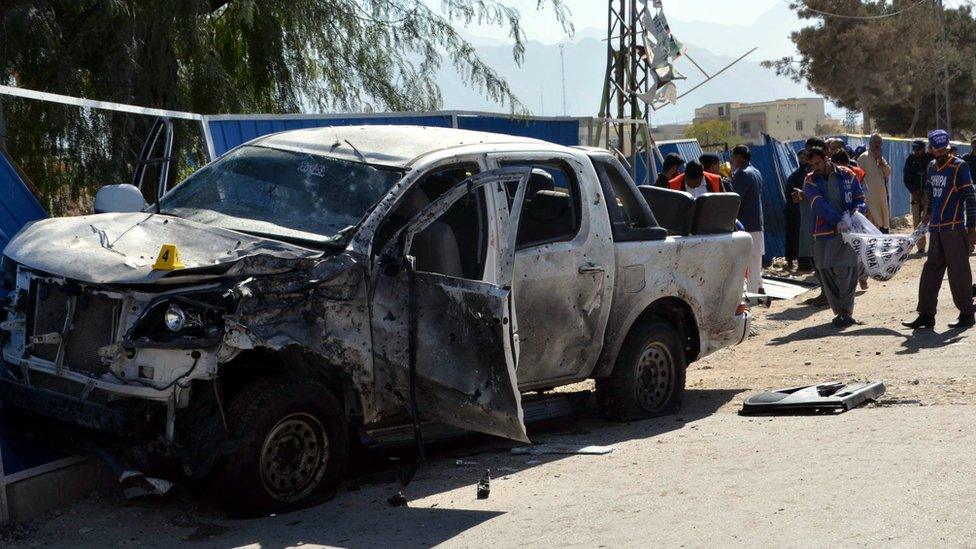Pakistan: How one girl overcame the armed men who blocked her school
- Published
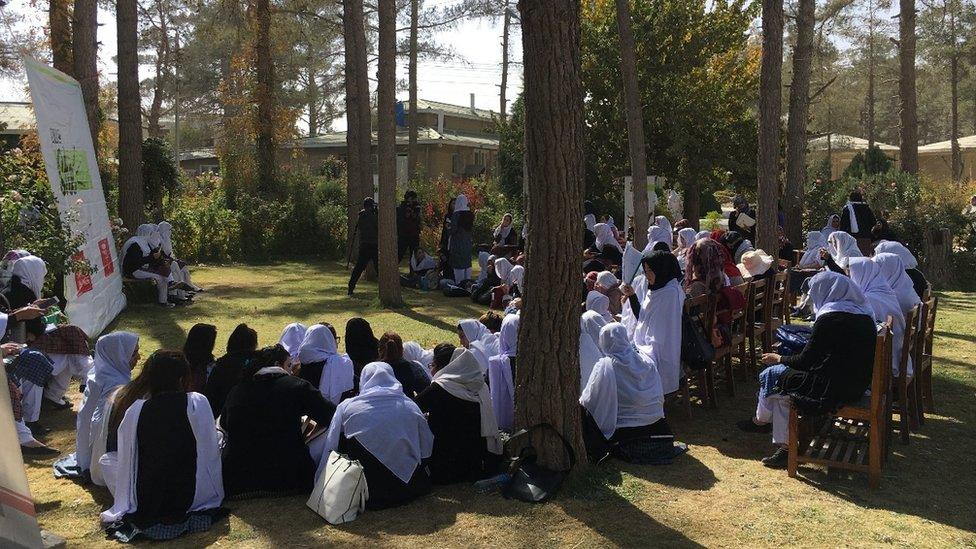
Naeema now attends the women's university in Quetta
For years, armed men surrounded a girls' school in a village in Pakistan's Balochistan province, to prevent the girls going inside. But one eventually made it to university and is now training to become a journalist. She told the story of her struggle to the BBC's Shumaila Jaffrey.
"I spent my childhood in fear," says Naeema Zehri, a student at Sardar Bahadur Khan Women's University in Quetta. "It still sends shivers down my spine when I think about it."
Naeema grew up in a tribal village in the Khuzdar district of Pakistan's restive Balochistan province. Her childhood coincided with a time when lawlessness was at its peak, she says. The news was full of tales of Baloch men being abducted and killed in targeted attacks. Fear, prejudice, and weapons were everywhere.
Balochistan is Pakistan's poorest province. It has endured long-running hostilities between separatist insurgents and the Pakistani army. In its remote mountainous villages, life is generally miserable, but women suffer particularly, Naeema says.
"My childhood was marred with poverty. We are seven siblings. My mother was not educated, so we had to depend on family charity to meet our basic needs. Education was a luxury that we could not afford."
For Naeema, getting an education was a struggle. She went to the free state-run girls' primary school in her village until the age of 10, but the school was shut down.
She says that from 2009 to 2013, the school was taken over by criminals supported by the local tribal chief and the men put up a barrier at the school entrance to keep the girls from the building. The BBC cannot independently confirm this, but such situations were not uncommon in Balochistan.
"The picket was barricaded; it was manned by six to eight armed individuals all the time. I remember walking past it in my childhood. We used to be terrified by the armed men standing out there. I would always fear that they might shoot me," Naeema says.
"Dressed up in shalwar kameez [loose baggy shirts and trousers worn by men in Pakistan], they used to have guns in their hands, their faces were always covered in scarves, only their eyes were visible."
'Don't send your girls to school'
The armed men never approached or threatened the children, Naeema says, but the picket served two purposes: it was to keep the girls away from education, and so the tribal chief's armed men could use the campus as a hideout.
"It was a clear message to the people," she says. "Don't send your girls to school."
The effect on the village was devastating. Government teachers did not dare to work in such an environment. Naeema and a few other girls were admitted to another school in a nearby village, but it was just a formality. Parents sent their girls there to get free cooking oil - which was provided by an international donor organisation to increase girls' enrolment in the area - but not to learn. Girls had their attendance marked in registers and then went home. Naeema says the teachers were scared, but partially corrupt too.
"There were many schools that only existed on paper in our area. Teachers were deputed in such schools and they were drawing salaries too - but the schools were completely dysfunctional," she says.
Meanwhile, the violence in Balochistan was taking its toll. Naeema had to face the abduction and death of her two maternal uncles within one year. She says they simply disappeared, and their bullet-riddled bodies were found months later.
"I was completely shattered. They were so young, so full of life; I couldn't overcome their deaths for a long time."
But the tragedy motivated Naeema to continue her education, she says. After finishing middle school she had to stop going to school but she didn't let it disrupt her studies.
"My family couldn't afford education, and they were also under pressure by the villagers."
That was because local women were not encouraged to pursue school education, she says - but to go to madrassas (religious seminaries) or to do chores.
"There is hypocrisy around that too. Women are not allowed to go out to get education, but when it comes to helping men in the field, there are no barriers. Those who stay home, they earn a living through embroidery - but it's the men who get and spend their wages."
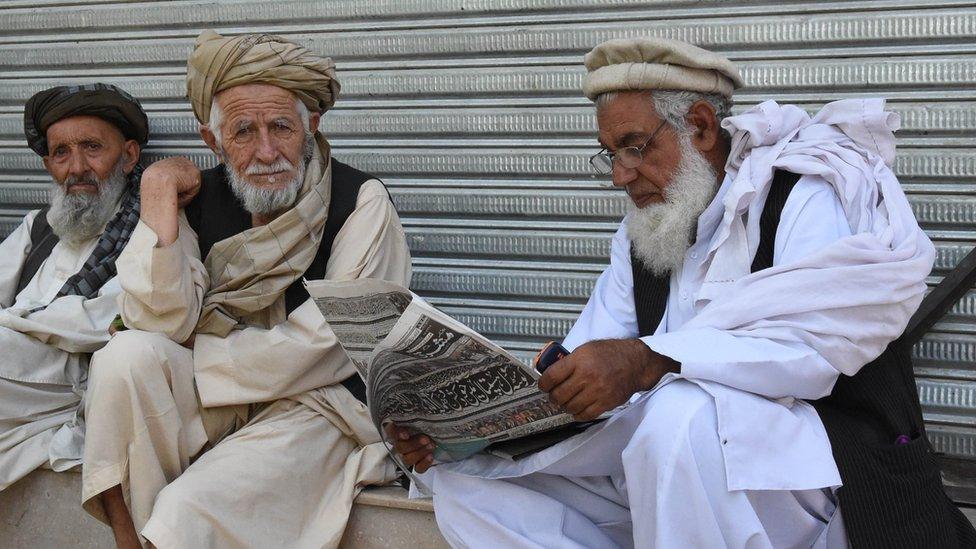
Balochistan is a deeply patriarchal society (file picture)
Naeema continued her studies at home and took exams as a private candidate. When she finished high school, her education was interrupted for some time because her brothers opposed it. But the murder of her uncles gave her new purpose. She noted that there was a complete silence in the media, and it left a mark on her psyche.
"Are Balochs not humans? Why do their lives not matter? I found it extremely hurtful," she says. "When will people start showing sensitivity toward Balochs?" The experience made her want to take up journalism.
'Telling the stories of my people'
International media outlets are not allowed to report from Balochistan unless they have special permission from the authorities - which they rarely get. Pakistan's mainstream media is also under a blanket ban when it comes to reporting on the insurgency in the province.
Naeema says that when she heard about Balochistan's only women's university, she persuaded her family to let her keep studying. Her brothers opposed the idea but one uncle supported her and paid her fees for a year. After that, she was out of funds - but she applied for a USAID sponsored scholarship, funded by the US government, and now her education is completely covered.
"I want to become a journalist so I can tell stories of my people, the people of Balochistan," she says. "And let me tell you that I won't be scared... I will always stand with the truth."
- Published12 May 2019
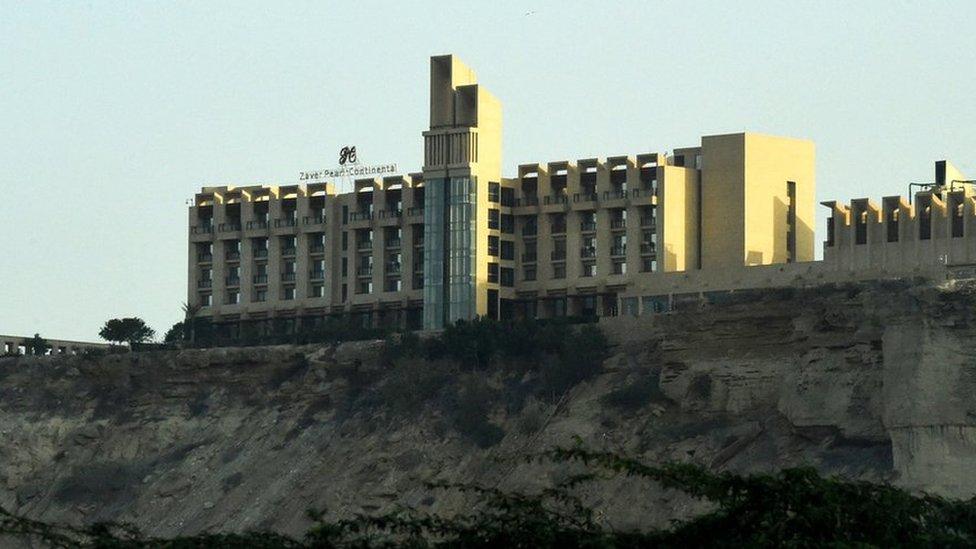
- Published10 June 2018
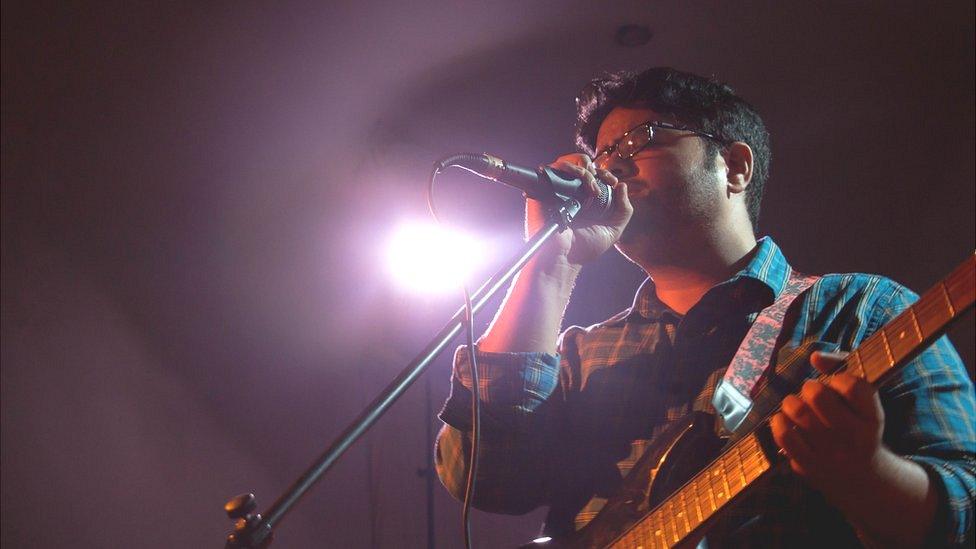
- Published26 November 2017
